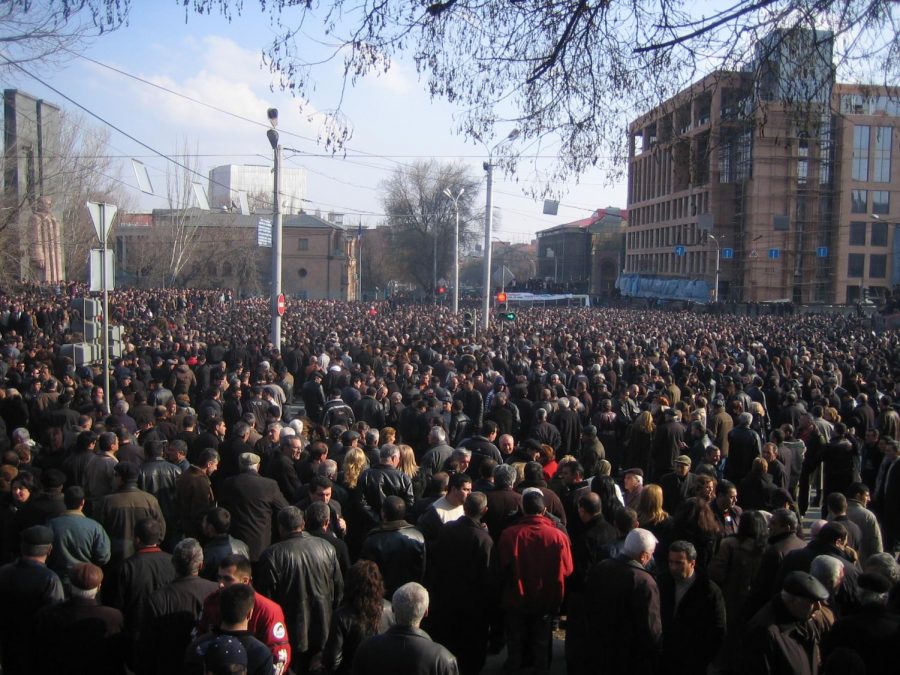“Yellow Jacket” Protests Erupt Across France
December 11, 2018
On November 24, violent protests erupted in France. This has many wondering what this could mean for president Emmanuel Macron, governing amongst an uprising in populist politics in the EU before the French elections next year. Pictures of protests, violence, and buildings on fire have begun surfacing, particularly in Paris, where even the Arc de Triomphe was vandalized.
Thousands of protesters took to the streets burning cars, looting stores, and setting up roadblocks in the streets.However, not all protests were violent. Most of the protesters nationwide are peaceful. Reports of injuries to both the police and protesters taking part in the protests have come out. Nicknamed for their safety vests, protestors known as gilet jaunes, the yellow vest movement, have created a political crisis for the French Government.
The protests have arisen from the recent increase in gas tax prices as a part of the government’s carbon tax reduction policy made to improve its environmental standings. In December of 2015 nearly every country in the world – 195 total – agreed on the first global pact aimed to reduce greenhouse gases. The idea behind the Paris Climate Accord was that every country would set goals to help reduce the amount of carbon emissions in order to slow climate change. The public’s resentment over these tax increases has escalated into these protests. Most of the protesters nationwide are peaceful. These mostly peaceful protests aren’t only concentrated in Paris; they can be found all over France in Nice, Marseilles, Lyon, Reims, and more as the movement continues to grow
The protests were originally thought to consist of the working class only, due to the distribution of wealth in France. This tax would disproportionately impact the middle and lower classes. However, the protests have since transformed into widespread discontent over Macron’s presidency as a whole, the high prices of living in France, and high unemployment rates. A protest that had started online morphed into a physical and violent movement. After several weeks of fairly contained protests, full scale riots erupted on Saturday, Dec. 1. The violence led to police deploying tear gas and water cannons against the protesters, and a reported 133 people were injured and 412 were arrested.
Macron has ordered his prime ministers to speak with leaders of this “yellow vest” movement, and the French government has decided they won’t implement the gas tax yet which is huge victory for the gilets jaunes. However, due to his high unpopularity rating and France’s high unemployment rate, experts say that the future is uncertain for Macron.
These French protests have inspired copycat protests in Belgium as well, raising the question on whether more of Europe will get involved. The movement is fairly apolitical, crossing over party lines and classes. The majority of the “yellow jacket” protesters are non-violent, but even still this increased pressure on the government might increase chances of the government reconsidering its policies.
As well as the protests, dozens of students in the Paris suburbs of Mantes- la-Jolie were forced to kneel on the ground outside their school on Thursday amid the unrest that has spread to schools as well. Students have begun protesting at almost 300 schools against strict university entrance requirements, and have added to the general unrest. Paris now prepares for another week of gilet jaunes protests.



